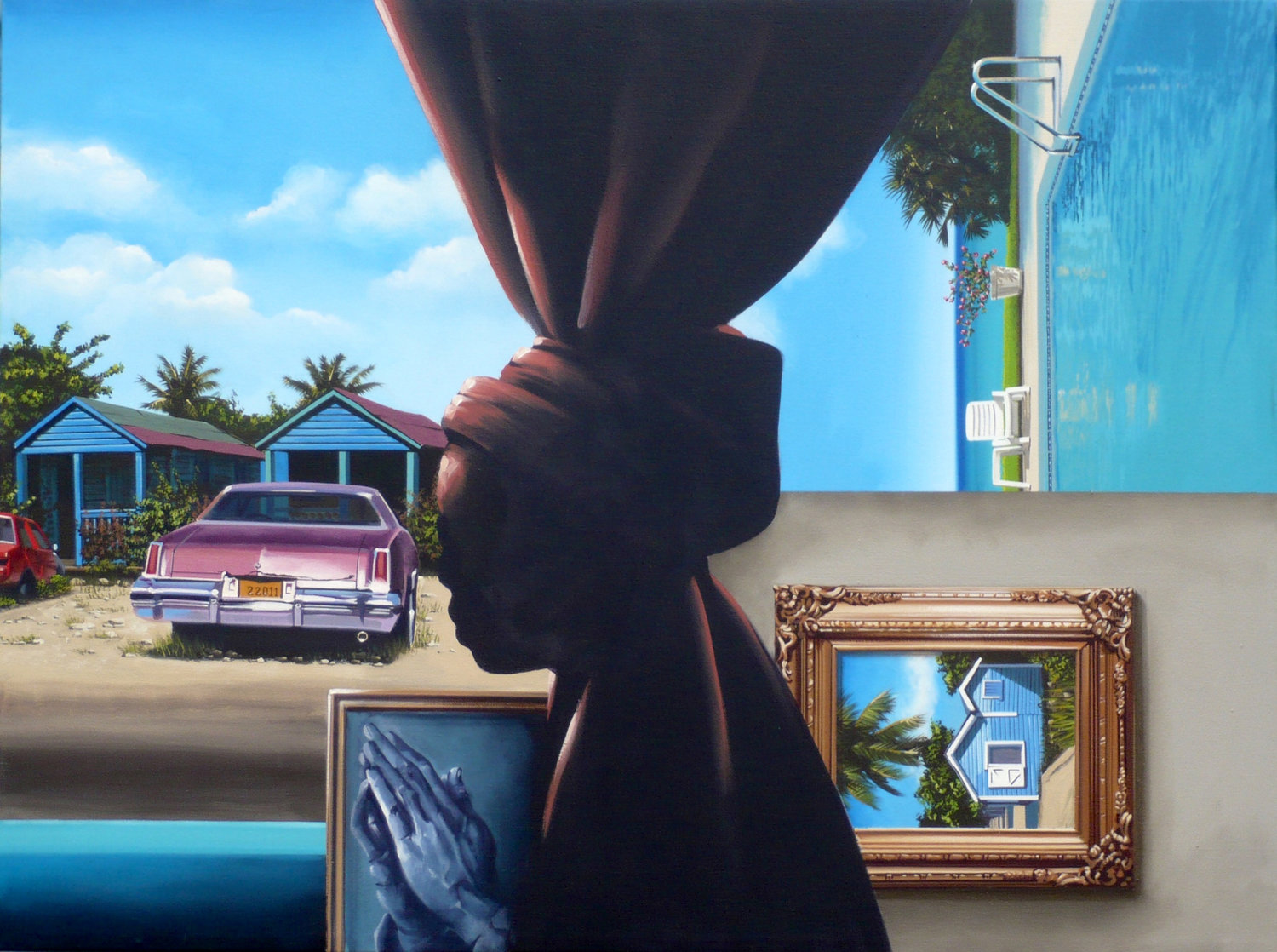
By Dr Ian Bethell-Bennett.
Sam Shepard has died.
Sam Shepard has died and we are left to remember his works. It is a different dying than Derek Walcott because he is further away, perhaps, but he throws into sharp relief our refusal to see ourselves as we pass through our everyday lives. A country teetering on the verge of yet another downgrade, a society shrouded in debt but unwilling to spend less because tings coss more and VAT bite me in my…? Perhaps to see their lives, their futures.
In theatre, the 1960s Bread and Puppet movement; a radically critical and political movement in drama made space for a play like Sam Shepard’s Buried Child (1978) to exist. It struck serious chords with his audiences and was dark beyond words, yet his words and the story captured the horror and the daily dysfunction without skipping a beat. Having read theatre in class, Sam Shepherd became somewhat of an anomaly because his work was so raw and hard-hitting. However, the impact was felt well after my professor pushed and prodded further. Can anyone ever go back to business as usual after this kind of ‘awakening’? That professor will always be in my head and that says something about the class and the teacher.
It is not the moment of comfort nor the likeness of understanding or identification, but an almost visceral knowledge that this is here, that this is happening. The play is centred around a newborn, who is buried, and a baby brought to life perhaps through incest, this is not clarified, and the audience is left to speculate. Buried Child much like Curse of the Starving Class (1978) speak to the unrest and underbelly very much present but not seen in the US. It is not the criminal underbelly, but the functionally dysfunctional life of the normal class that is destroyed by secrets and silence. Both plays use the dark humour to expose the ugly truth of normal living.
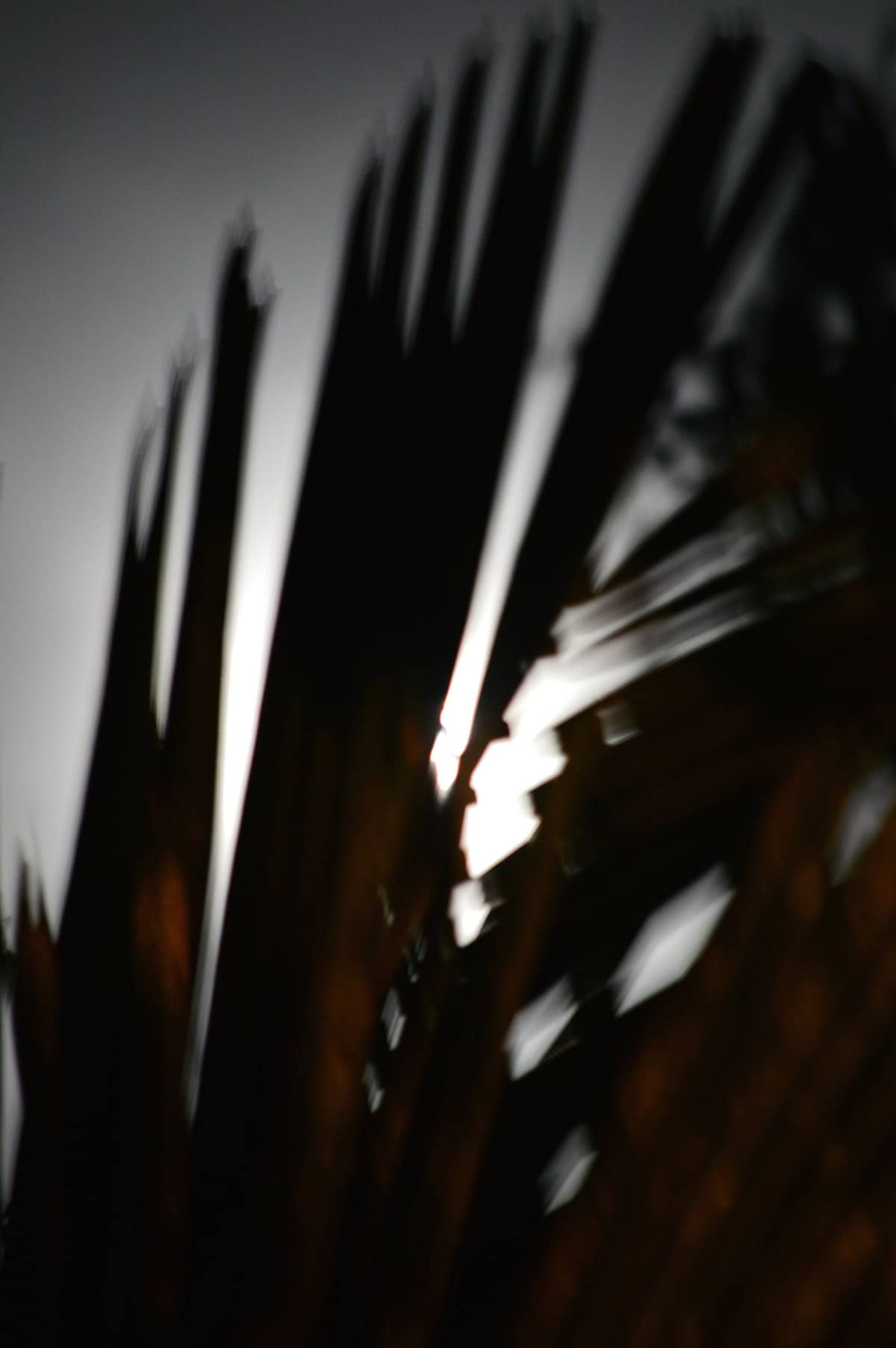
The ubiquitous palm. Image by Dr Ian Bethell Bennett.
Ian Strachan’s play Honourable Member, (from reading the reviews of it from my students) has begun this discussion, yet does not take it to the death scene where the murderous politician kills the country. To laugh at such would be too dark, but perhaps we need to start looking at the darker side of life? Yet the same students are unwilling to see anything too critically. They want to know what to write in their papers. Little interest in anything other than Wendy’s, work gossip and not showing up for class, but fighting to get a grade that they did not work for.
Sam Shepard has died and, here, we are unaffected by his passing. We argue that Nassau roads are damn bad (true). That government need to start doing something (true), that people are too mean and nasty (true), as we throw Wendy’s large cup that once held syrupy coke-soda out of the window, almost hitting a pedestrian, “Move damn man,” and, yes, hitting a potcake, frigging dog! Because we are in a rush to get to work because traffic so damn slow and I ain’t got time for foolishness. I broke and need dis job and I ain’t been in de office since Monday and is Thursday, but nobody ga notice because I workin in the government place’ Nobody ga notice nuttin’. The attitude stinks but no one nips it in the bud. ‘It’ belongs to the realm of the government. They must solve it. ‘It’ is the innocuous thing in writing that no one ever knows what ‘it’ is.
‘It’ must always be celebrated that these things are done. Not that they are executed beyond criticism, but that someone had the balls to get out and do something other than wake up, go to work, go home and cuss the government under their breath. Sorry, this may be too scathing, sperm whales and other species unknown to many have been dying because of a world gone crazy, denial of global warming and sonar messing with their make up potential. Perhaps there is no humour in death, but when we look at our impending death, there must be humour as no one seems to be looking at the approaching train as they stand on the tracks. Should we move? Should we do something different? The 1970s were so much more in your face than our angry uncertainty today and our commitment to consuming whatever we can.
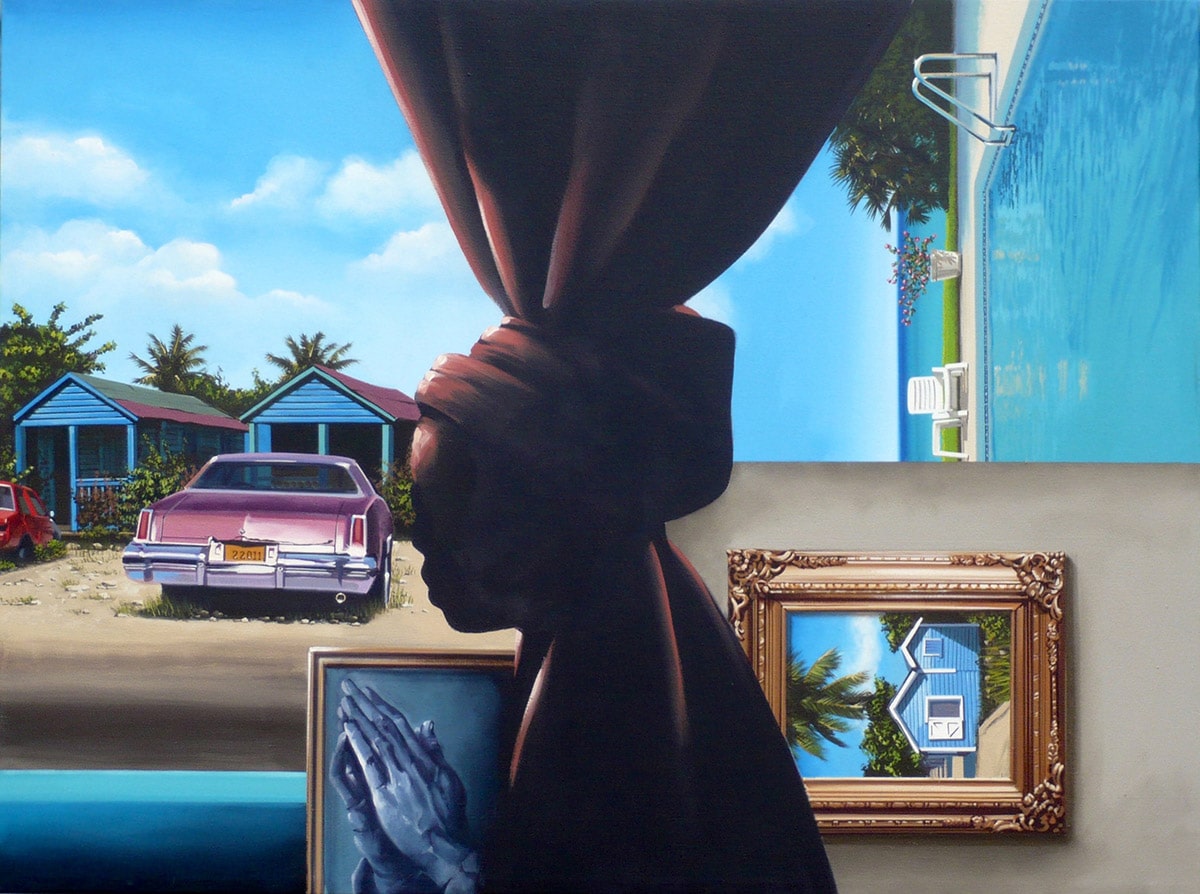
Dave Smith. ‘Blues From the Other Side”. A 2011 works as showcased at the D’Aguilar Art Foundation in 2016.
So few youth know that there are whales in The Bahamas. Few youth understand that the flooding we see in the streets almost regularly now is due to sea level rise. As some of us swim on Cabbage Beach the smell of sewage gently floods our nostrils and the effluence grows yellow mossy stuff on the seafloor because the heat is rising and no one talks about it except those damn environmentalists, who need to shut up because they are stopping development and progress, says the politician as hinted at in Strachan’s play, hand deeply in his pocket grasping the back kick proceeds from his latest deal?
For that, we can blame the government. They are corrupt and they do steal. But no, not all. When we talk about crime it is as if it were something that exists outside of their hallowed halls of deceit and deference/différance. As the White House changed direction in January, climate change now no longer exists, much like there is nothing that is true, even when one is caught in a lie.
#alternativefacts.
As we, The Bahamas, much like the Maldives—where Parliament was held underwater in October 2009—wait for the seas to flow over us. The protest then was about them disappearing into the sea. Yet no one in The Bahamas–which sits almost exactly at the same level of the Maldives– says much about this minor inconvenience. Is it fact? Or is it Foxy news?
Thursday evening another art show will open, and life will continue as normal. One thing is certain; some people will attend. Sam Shepard will be dead, still, and, for many, the message of his plays will be dead with him.
The opening of Jodi Minnis’ show “Home|Home” at the D’Aguilar Art Foundation will be a blip on the screen, but perhaps we need to think about it a little more. What are we doing to ourselves and what are we learning? As a population that has plunging literacy rates, sharply rising debt rates, who is running out of land because most of it will be claimed by sea water soon, where are we going?
If an entire population moves is it still a nation?
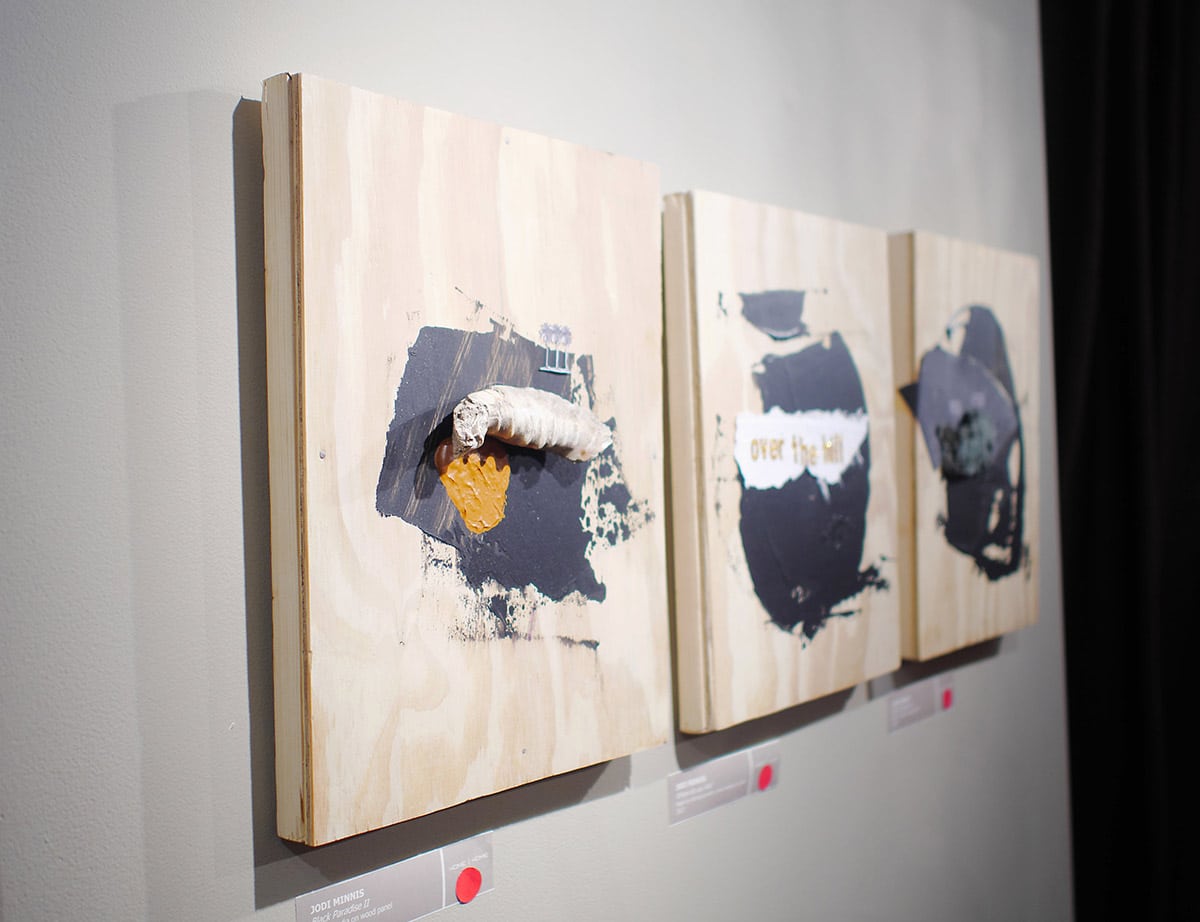
Jodi Minnis installation of “Home|Home” at D’Aguilar Art Foundation (DAF). The exhibition opened on August 3rd at the DAF and is on view through the August 15th.
As the ‘hills’ are flattened for more construction in the west and south, we lower the land so that the seas can flow easily across it. Much like the silence of incest in Shepard’s play the damages of sexual tourism, its effect on youth along with growing rates of incest and the acceptance of incest among families; Buried Child is not foreign or strange to the country.
Billie Holiday’s opus Strange Fruit is a tragic crooning song and it sings of some deep and serious pain and trauma. Jodi Minnis’ work may be art but it asks us to think and be a little bit more aware of our space and circumstance. As coconuts have become ubiquitously identified with the Caribbean and so The Bahamas, how do we disassociate them from ourselves and our identities? They came here on a boat or floated here before you were born, but they still came.
Invasive species? Silence and social death? Buried (incest-bourne) children? Nudity and prostitution?? Capitalist driven markets? Our choice to silence protest is a serious problem.
We must be careful how we are imaged/imagined into being because the very naturalism of the image can be our undoing. Let us hope that these few blips on the screen can ignite some real interrogation.
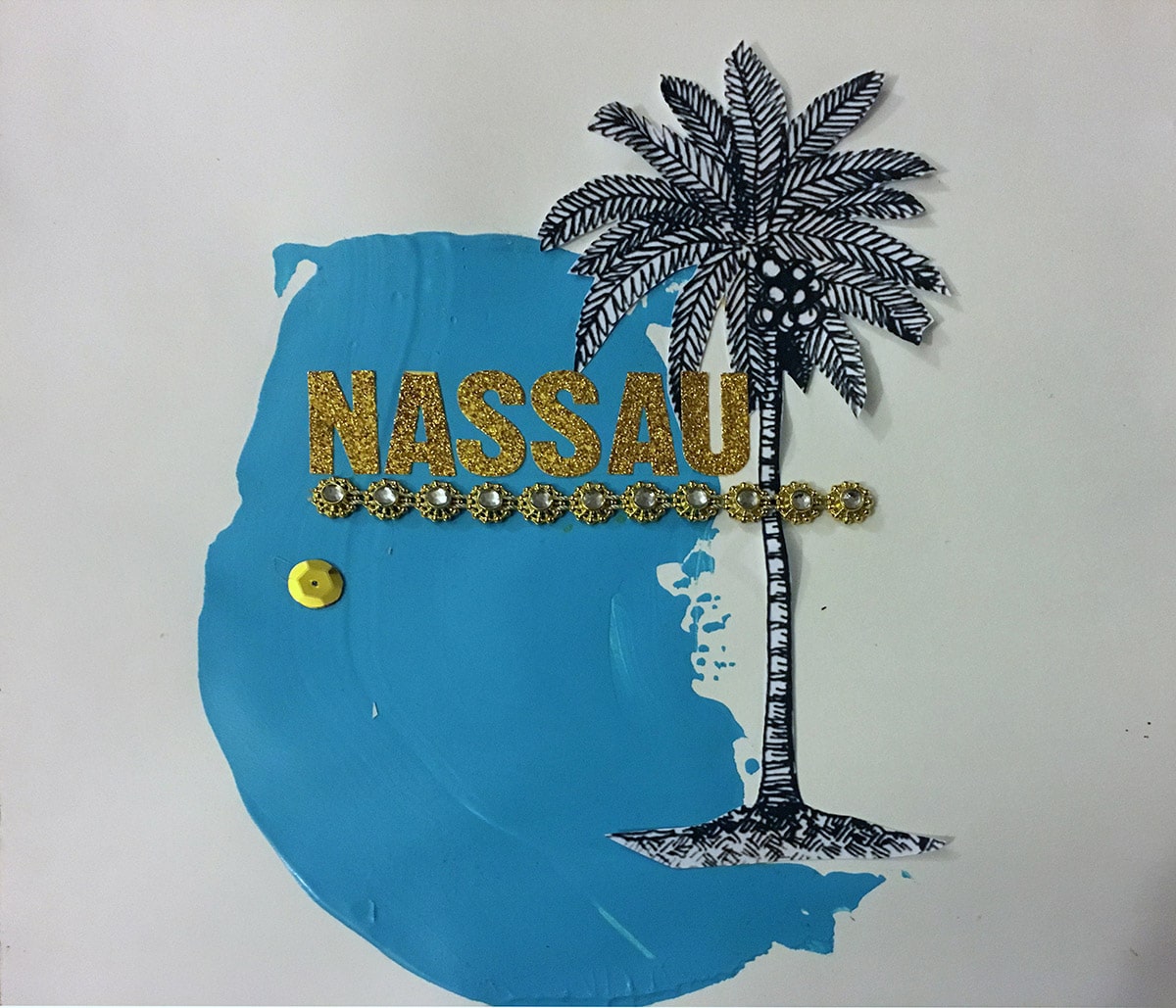
Jodi Minnis “Nassau” a part of her “Home|Home” Installation at DAguilar Art Foundation. “Home|Home” opened on August 3rd at the Foundation and is on view through the August 15th.
The nuances of Sam Shepard’s Buried Child cannot be escaped here, even though we say that incest and murder came from elsewhere. The reality of having a single woman in Cabinet and the severe lack of women’s rights or any discussion concerning human rights with regard to gender and sexuality, or concerning the environment where we live and the fact that we are losing land to sea water, will soon be our undoing because we are looking for saviours to come in white cloaks and save us from ourselves.
David Harvey writes of the takeover in the 1970s of the political move towards a more progressive state where Women, Blacks, Latinos would have been more empowered, but the moral majority aligned with government and suddenly we could no longer speak about certain things. We sold our souls for an apparent national return to greatness, (much like today’s US message). We must come to terms with the fact that we are all invasive species and we need to talk about ourselves; our stories cannot be co-opted by silence and power.
The need for art and art installations in a decaying downtown Nassau is beyond doubt. Let’s embrace the work that is developing in the country and embrace the people making it. It may not all be perfect, but it is a journey and we need to go on that journey. We are more than a tropicalised beach littered with Wendy’s cups, potcakes and unproductive bodies. The invasive species is also the corruption and rot, the lack of integrity, the incest, the unproductivity that has become as endemic as mangoes and coconuts because we allowed this. Shall we sit and croon under the mango tree or strange fruit? One is more directly violent than the other, but both undermine and deny the ability to speak up.